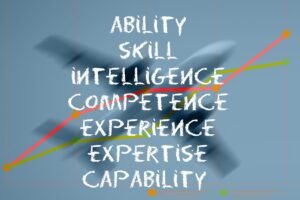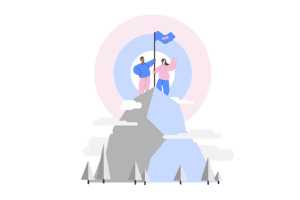
In the ever-evolving landscape of careers and professions, finding the right path can be a daunting task. Whether you’re a recent graduate embarking on your professional journey, an individual considering a career change, or someone seeking guidance in maximizing your career potential, career counseling can be a valuable resource. This article explores the importance of career counseling, the benefits it offers, and how it can help individuals navigate their way to a satisfying and successful career.
Understanding Career Counseling

Career counseling is a process that assists individuals in identifying and exploring career options, making informed decisions about their future, and developing strategies to achieve their goals. It goes beyond simply taking aptitude tests or providing job search advice; it is a holistic approach that encompasses self-exploration, goal-setting, and ongoing support. Career counselors are trained professionals who help individuals understand their interests, values, skills, and aspirations, and guide them in aligning these factors with suitable career paths.
The Importance of Career Counseling

In a study conducted in 2014, it was found that only 52.3% of people reported being happy with their employment situation. Considering the significant amount of time individuals spend at work, job satisfaction plays a crucial role in overall well-being. An unsatisfying career can lead to mental health challenges, such as anxiety and depression. Career counseling can help individuals gain a better understanding of themselves and their talents, allowing them to make informed decisions about their career paths. By exploring their interests, values, and skills, individuals can identify careers that align with their personal and professional goals, leading to a more fulfilling and rewarding professional life.
Benefits of Career Counseling

Career counseling offers numerous benefits for individuals at all stages of their careers. By working with a career counselor, individuals can:
1. Explore Interests, Values, and Skills

A career counselor helps individuals explore their interests, values, and skills through various assessments and exercises. These tools provide insights into what motivates and energizes individuals, helping them identify potential career paths that align with their passions.
2. Understand the Relationship Between Education and Career Goals
Education plays a vital role in career development. Career counseling helps individuals understand how their education relates to their career goals. It assists in making informed decisions about further education, exploring different career options, and understanding the educational requirements needed to pursue those options.
3. Make Informed Decisions About the Future
Career counseling equips individuals with the necessary information and tools to make informed decisions about their future. It provides insights into various career options, their pros and cons, and the steps required to pursue each path. By considering their strengths, weaknesses, and personal preferences, individuals can make decisions that align with their goals and aspirations.
4. Develop Strategies for Achieving Career Goals
A career counselor helps individuals develop strategies for achieving their career goals. They assist in identifying and exploring career options, developing job search strategies, and enhancing resumes and cover letters. Additionally, they provide guidance on interview preparation and help individuals navigate the job market effectively.
5. Navigate Career Transitions

Career transitions can be challenging, whether it’s changing industries, pursuing further education, or starting a new job. A career counselor offers support and guidance throughout the transition process, helping individuals explore new career options, identify transferable skills, and create a plan for a successful transition.
6. Overcome Obstacles to Career Success
Career counselors play a pivotal role in helping individuals overcome obstacles to career success. They assist in identifying and addressing barriers that may be preventing individuals from achieving their goals. By offering guidance and support, career counselors help individuals develop strategies to overcome challenges such as lack of direction, self-doubt, imposter syndrome, and lack of confidence.
7. Build a Satisfying and Successful Career
Career counseling empowers individuals to build a satisfying and successful career. By helping them assess their interests, skills, and values, career counselors guide individuals in finding careers that align with their unique qualities. They provide information about job outlooks, requirements, and educational opportunities, enabling individuals to make informed decisions about their career paths.
Types of Career Counseling
Career counseling can take various forms, depending on the specific needs and goals of individuals. Some common types of career counseling include:
1. School Counselors

School counselors or advisors often provide career counseling services to students and alumni. They assist in choosing majors, understanding career options related to specific degrees, and planning for future careers. School counselors can provide valuable guidance on educational steps, networking events, and internships.
2. Career Counselors
Individual career counselors specialize in providing one-on-one sessions tailored to an individual’s specific needs and goals. They administer assessments, conduct interviews, and offer personalized guidance to help individuals explore career options, develop job search strategies, and navigate career transitions.
3. Life Coaches
Life coaches take a holistic approach to career counseling, focusing on individuals’ overall life goals and aspirations. They help individuals envision their ideal life, including their desired career, and assist in creating action plans to achieve those goals. Life coaches empower individuals by developing skills, building confidence, and providing ongoing support.
4. Therapists
Therapists can also provide career counseling services, considering an individual’s career within the broader context of their mental health and well-being. They help individuals gain self-awareness, build resilience, and develop healthy coping mechanisms to navigate their career paths successfully.
Finding a Career Counselor

Finding the right career counselor is essential for a successful counseling experience. Here are some tips for finding a career counselor that meets your needs:
- Seek Recommendations: Ask for recommendations from friends, family, or colleagues who have had positive experiences with career counselors.
- Research Credentials: Look for career counselors who have relevant certifications, degrees, or memberships in professional organizations such as the National Career Development Association (NCDA).
- Consider Specializations: Some career counselors specialize in specific industries or populations. Consider your unique needs and look for a career counselor who has expertise in those areas.
- Arrange Consultations: Schedule consultations with potential career counselors to discuss your goals, their approach, and their ability to meet your needs. This will help you gauge whether you have a good rapport and feel comfortable working with them.
- Online Options: Consider online career counseling platforms that offer access to qualified career counselors through virtual sessions. This can provide flexibility and convenience, especially for individuals with busy schedules or limited access to in-person counseling services.
Remember, career counseling is an investment in your future. By seeking guidance from a qualified career counselor, you can gain clarity, make informed decisions, and navigate your path to success.
Career Counseling Costs: A Comprehensive Guide

Embarking on a career journey often involves seeking guidance from career counselors who serve as navigators in the professional realm. Understanding the costs associated with career counseling is pivotal for individuals contemplating this investment. In this guide, we unravel the intricacies of career counseling costs, exploring the factors influencing pricing, the potential advantages, and considerations for making an informed decision.
1. What Influences the Cost of Career Counseling?
Professional Expertise and Experience:
The level of expertise and experience of the career counselor significantly influences the cost. Seasoned professionals with extensive backgrounds in career counseling may charge higher fees, reflecting their wealth of knowledge.
Session Duration and Format:
The duration and format of counseling sessions play a role in determining costs. One-on-one in-person sessions, virtual consultations, or group workshops may have varying price structures. Longer sessions or comprehensive packages may incur higher fees.
Specialized Services:
Career counselors offering specialized services, such as executive career coaching, industry-specific guidance, or personality assessments, may command higher fees. The depth and breadth of services tailored to individual needs contribute to the overall cost.
Geographic Location:
The cost of career counseling can vary based on geographic location. Counselors operating in metropolitan areas or regions with a higher cost of living may set higher fees compared to those in less expensive locales.
2. Average Costs of Career Counseling Services
Individual Sessions:
Individual career counseling sessions typically range from $100 to $300 per hour. The variance is influenced by factors such as the counselor’s expertise, geographic location, and the depth of services provided.
Package Deals:
Career counselors often offer package deals that include multiple sessions, assessments, and follow-up support. These packages can range from $500 to $2,000 or more, depending on the scope of services included.
Group Workshops:
Participating in group workshops or seminars may present a more cost-effective option. Prices for group sessions can range from $50 to $200, making them accessible for individuals seeking guidance within a budget.
3. Advantages of Investing in Career Counseling
Informed Decision-Making:
Career counseling empowers individuals with insights into their strengths, interests, and values, facilitating informed decision-making regarding career paths and goals.
Tailored Guidance:
Personalized guidance from a career counselor ensures that advice and strategies are tailored to an individual’s unique circumstances, fostering a more effective career development plan.
Skill Development:
Career counselors often focus on skill development, helping individuals hone essential skills such as resume writing, interview techniques, and networking strategies, enhancing their competitiveness in the job market.
4. Considerations for Cost-Effective Career Counseling
Research Multiple Options:
Before committing to a career counselor, researching and exploring multiple options is essential. Compare the services offered, reviews, and pricing structures to find the best fit for your needs and budget.
Assess Individual Needs:
Understanding your specific needs and goals is crucial. If you require comprehensive career guidance, a package deal may offer better value than individual sessions. Assess what services align with your objectives.
Explore Free or Low-Cost Resources:
Explore free or low-cost career resources available online or through community organizations. While not a substitute for personalized counseling, these resources can provide valuable insights.
FAQs About Career Counseling Costs
Q1: Is career counseling covered by insurance?
In most cases, career counseling is not covered by insurance. It is considered a personal or professional development service rather than a medical necessity.
Q2: Are there government-funded career counseling services?
Some countries offer government-funded or subsidized career counseling services through workforce development programs. Check with local employment agencies or government initiatives for potential resources.
Q3: How many sessions are typically needed for effective career counseling?
The number of sessions needed varies based on individual goals and circumstances. Some individuals benefit from a single comprehensive session, while others may opt for ongoing support through multiple sessions.
Conclusion: Investing in Your Professional Journey
In the realm of career development, investing in career counseling is akin to navigating uncharted waters with an experienced guide. While the cost may vary, the potential benefits in terms of informed decision-making, tailored guidance, and skill development can significantly impact your professional journey. Assessing your needs, researching options, and making a well-informed decision will contribute to a worthwhile investment in your career growth and fulfillment.
Key Questions to Ask a Career Adviser

Embarking on a career journey often involves seeking guidance from a career adviser. Asking the right questions can illuminate your path, providing insights and strategies for professional growth. In this guide, we outline essential questions to ask a career adviser, ensuring a fruitful and personalized consultation.
1. Understanding the Adviser’s Approach
Q1: What is your approach to career advising?
Understanding the adviser’s methodology helps align expectations. Some advisers focus on assessments, while others emphasize practical strategies or holistic development.
Q2: How do you tailor advice to individual needs?
Exploring how the adviser customizes guidance ensures that the advice provided aligns with your unique strengths, goals, and challenges.
2. Exploring Assessment Tools and Tests
Q3: Do you use career assessment tools or personality tests?
Assessment tools can provide valuable insights. Inquiring about their use and effectiveness helps you understand how your strengths and preferences will be evaluated.
Q4: How do you interpret assessment results?
Understanding how the adviser interprets assessment results ensures that you gain meaningful insights into your career preferences and potential paths.
3. Career Exploration and Goal Setting
Q5: How can I explore different career paths?
Seeking guidance on avenues for exploring diverse career paths ensures you have the resources and strategies to make informed decisions.
Q6: What steps can I take to set and achieve career goals?
Discussing goal-setting strategies with the adviser helps create a roadmap for your professional aspirations, promoting tangible progress.
4. Skill Development and Enhancement
Q7: How do you assist in identifying and developing key skills?
Understanding the adviser’s role in skill identification and development ensures you receive practical guidance for enhancing your professional capabilities.
Q8: Are there specific training or workshops you recommend for skill enhancement?
Inquiring about recommended training or workshops aligns your skill development with industry trends and demands.
5. Job Search Strategies and Networking
Q9: What effective job search strategies do you recommend?
Gaining insights into proven job search strategies helps you navigate the competitive job market with targeted and efficient approaches.
Q10: How can I build and leverage professional networks?
Understanding the adviser’s guidance on networking ensures you harness connections effectively for career advancement.
6. Handling Career Transitions and Challenges
Q11: How do you assist individuals in career transitions?
Discussing the adviser’s approach to career transitions ensures you receive guidance during pivotal moments in your professional journey.
Q12: How can you help overcome specific career challenges?
Understanding the adviser’s strategies for overcoming challenges ensures you have a support system during career setbacks or uncertainties.
7. Evaluating Professional Development Opportunities
Q13: What professional development opportunities do you recommend?
Inquiring about recommended professional development opportunities ensures you stay abreast of industry trends and advancements.
Q14: How can I maximize learning and growth in my current role?
Understanding strategies for maximizing growth in your current role ensures you make the most of your professional experiences.
8. Addressing Work-Life Balance and Well-Being
Q15: How do you approach work-life balance discussions?
Discussing the adviser’s perspective on work-life balance ensures a holistic approach to your well-being and career satisfaction.
Q16: What resources or strategies do you recommend for managing stress in the workplace?
Inquiring about stress management strategies demonstrates a commitment to maintaining a healthy work environment.
9. Assessing the Adviser’s Success Stories
Q17: Can you share success stories of clients you’ve worked with?
Listening to success stories provides insights into the adviser’s effectiveness and their ability to guide individuals toward career success.
Q18: How do you measure the success of your career advising sessions?
Understanding the metrics or criteria used by the adviser to measure success ensures transparency and accountability in the advisory process.
Conclusion: Empowering Your Career Journey
Asking thoughtful questions during a career advising session transforms the experience into a collaborative and empowering journey. By delving into the adviser’s approach, exploring assessment tools, and addressing specific career aspects, you pave the way for informed decisions, skill development, and professional fulfillment. Remember, your questions are the compass guiding you toward a successful and fulfilling career path.
Unveiling the World of Online Career Counseling

In an era where digital connectivity is paramount, online career counseling has emerged as a valuable resource for individuals seeking professional guidance. This guide sheds light on the nuances of online career counseling, exploring its benefits, key considerations, and how to make the most of this virtual avenue for career development.
1. What is Online Career Counseling?
Q1: What distinguishes online career counseling from traditional in-person sessions?
Understanding the virtual nature of online career counseling helps individuals grasp the unique aspects and advantages of this mode of professional guidance.
Q2: What platforms or tools are commonly used for online career counseling?
Exploring the virtual tools and platforms employed by career counselors ensures individuals are comfortable with the technology used during online sessions.
2. Advantages of Online Career Counseling
Q3: How does online career counseling offer flexibility for scheduling sessions?
Discussing the flexibility in scheduling online sessions allows individuals to tailor counseling to their time constraints and preferences.
Q4: What are the advantages of accessing career counseling from the comfort of my home?
Understanding the convenience and comfort of accessing counseling from home highlights the benefits of eliminating geographical constraints.
3. Key Considerations for Effective Online Career Counseling
Q5: How is the privacy and confidentiality of online sessions maintained?
Ensuring the privacy and confidentiality of online sessions is crucial. Inquiring about security measures provides reassurance for individuals seeking counseling.
Q6: What steps are taken to address technical issues during virtual sessions?
Understanding the troubleshooting processes for technical issues ensures a seamless counseling experience without disruptions.
4. Exploring Virtual Assessment Tools
Q7: Are online career assessments as effective as in-person assessments?
Inquiring about the effectiveness of virtual assessments helps individuals gauge the reliability and accuracy of the tools used in online career counseling.
Q8: How are assessment results communicated and discussed in an online setting?
Understanding the communication process for assessment results ensures individuals receive comprehensive explanations and insights during virtual sessions.
5. Tailoring Career Strategies in a Virtual Space
Q9: How do you tailor career strategies to individual needs through online sessions?
Inquiring about the customization of career strategies in an online setting ensures individuals receive personalized guidance aligned with their unique goals.
Q10: Can online career counseling address specific challenges, such as career transitions or skill development?
Discussing the adviser’s approach to addressing specific challenges virtually ensures individuals receive targeted guidance during pivotal moments in their career journey.
6. Cost-Effective Aspects of Online Career Counseling
Q11: Are online counseling services typically more cost-effective than in-person sessions?
Understanding the cost implications of online career counseling helps individuals assess the value and affordability of virtual guidance.
Q12: Are there package deals or discounts for online counseling sessions?
Inquiring about package deals or discounts for multiple sessions ensures individuals can maximize the benefits of online counseling within a budget.
7. Tips for Making the Most of Online Career Counseling
Q13: How can individuals actively participate and engage during virtual sessions?
Seeking tips for active participation helps individuals make the most of their online counseling experience, fostering a collaborative and impactful dialogue.
Q14: Are there resources or materials provided for ongoing self-guided career development?
Inquiring about supplementary resources enhances individuals’ ability to continue their career development journey independently between counseling sessions.
8. Success Stories and Testimonials in the Virtual Realm
Q15: Can you share success stories of clients who have benefited from online career counseling?
Listening to success stories provides firsthand insights into the effectiveness of online career counseling and its impact on individuals’ professional journeys.
Q16: Are there testimonials or reviews from individuals who have experienced online career counseling with you?
Exploring testimonials or reviews offers a glimpse into the satisfaction and success of individuals who have navigated their careers with the guidance of the online career counselor.
Conclusion: Embracing the Future of Career Guidance
Online career counseling represents a dynamic and accessible frontier in the realm of professional development. By asking insightful questions, understanding the virtual landscape, and exploring the advantages, individuals can embark on a transformative journey towards career success from the comfort of their digital space. Embrace the future of career guidance through online counseling, where geographical boundaries fade, and opportunities for growth are just a click away.
Career counseling for Working Professionals

For working professionals seeking to elevate their careers, the guidance of a career counselor becomes a valuable compass. In this guide, we delve into the nuances of career counseling tailored for those already immersed in the professional landscape, exploring key considerations, benefits, and strategies for maximizing growth.
1. Understanding Career Counseling for Working Professionals
Q1: How does career counseling for working professionals differ from services for individuals at the beginning of their careers?
Understanding the unique needs and challenges of working professionals ensures that the counseling approach is tailored to their specific career stage.
Q2: What expertise and experience do you have in providing career counseling for mid-career professionals?
Inquiring about the career counselor’s experience with mid-career professionals ensures that they possess the insights and strategies relevant to this career stage.
2. Benefits of Mid-Career Career Counseling
Q3: How can career counseling benefit professionals who are already established in their careers?
Discussing the potential benefits helps working professionals grasp the value of career counseling in terms of growth, fulfillment, and strategic career planning.
Q4: Can career counseling assist in navigating career plateaus or burnout?
Understanding how career counseling addresses common challenges like plateaus or burnout provides working professionals with strategies for overcoming these hurdles.
3. Assessing Skills, Strengths, and Goals
Q5: How do you assist in identifying and leveraging existing skills and strengths for career advancement?
Inquiring about the process of skill and strength assessment ensures that working professionals receive guidance on maximizing their current capabilities.
Q6: Can career counseling help in aligning professional goals with personal values and aspirations?
Understanding how career counseling aligns professional goals with personal values ensures a holistic approach that resonates with the individual’s overall aspirations.
4. Strategic Career Planning and Development
Q7: What strategies do you employ for long-term career planning and development?
Exploring the counselor’s approach to long-term planning ensures that working professionals receive guidance that transcends immediate career goals.
Q8: Can career counseling assist in making strategic career moves, such as transitions to leadership roles or different industries?
Understanding the role of career counseling in strategic career moves helps professionals navigate transitions effectively.
5. Embracing Technological Advancements
Q9: How does career counseling leverage technology for the benefit of working professionals?
Inquiring about the integration of technology ensures that working professionals can harness digital tools for skills development, networking, and career exploration.
Q10: Are there specific online resources or platforms recommended for ongoing professional development?
Understanding recommended online resources enhances working professionals’ ability to continue their development autonomously between counseling sessions.
6. Addressing Work-Life Integration and Well-Being
Q11: How does career counseling consider the balance between professional ambitions and personal well-being?
Discussing the counselor’s approach to work-life integration ensures that professionals receive guidance that prioritizes both career success and personal fulfillment.
Q12: Can career counseling help in managing stress and avoiding burnout in demanding professional roles?
Inquiring about stress management strategies demonstrates the counselor’s commitment to the overall well-being of working professionals.
7. Crafting Effective Networking Strategies
Q13: How can career counseling assist in expanding professional networks and leveraging connections?
Understanding networking strategies ensures that working professionals receive guidance on cultivating meaningful connections for career advancement.
Q14: Are there specific techniques for networking in the digital age, such as leveraging social media or online platforms?
Inquiring about modern networking techniques aligns professionals with current trends, maximizing their networking efforts in the digital landscape.
8. Customizing Career Counseling to Industry Trends
Q15: How do you stay updated on industry trends, and how does this knowledge benefit career counseling for professionals in specific sectors?
Inquiring about the counselor’s awareness of industry trends ensures that advice is aligned with the evolving landscape of various professional sectors.
Q16: Can career counseling help professionals transition into emerging fields or industries?
Understanding the adaptability of career counseling ensures that professionals can explore and transition into burgeoning fields aligned with their interests.
Conclusion: Empowering Professional Journeys
Career counseling for working professionals is a dynamic partnership aimed at empowering individuals to navigate their professional journeys strategically. By asking pertinent questions, understanding the unique benefits, and exploring the counselor’s approach to specific challenges, working professionals can unlock the full potential of their careers. Embrace the guidance of a career counselor as a catalyst for growth, fulfillment, and sustained success in the ever-evolving landscape of the professional world.
Career Counseling for Final Year Students

As final year students stand on the threshold of their professional journeys, the guidance of career counseling becomes instrumental. This guide illuminates the facets of career counseling tailored for students transitioning from academia to their first jobs, exploring key considerations, benefits, and strategies for a successful entry into the workforce.
1. Understanding Career Counseling for Final Year Students
Q1: How does career counseling for final year students differ from general career counseling services?
Understanding the nuances specific to this transitional phase ensures that the counseling approach aligns with the unique needs and challenges faced by graduating students.
Q2: What experience do you have in assisting final year students in securing their first jobs?
Inquiring about the counselor’s experience with early career professionals ensures that they are well-versed in the dynamics of entry-level job searches.
2. Benefits of Career Counseling for Graduating Students
Q3: How can career counseling benefit students in securing their first job?
Discussing the potential benefits helps students grasp the value of career counseling in terms of job search strategies, resume building, and interview preparation.
Q4: Can career counseling assist in exploring diverse career paths and industries for entry-level roles?
Understanding the exploration aspect ensures that students receive guidance on considering a variety of entry-level opportunities aligned with their skills and interests.
3. Crafting an Effective Job Search Strategy
Q5: What strategies do you recommend for students in crafting a compelling resume and cover letter?
Inquiring about resume and cover letter strategies ensures that graduating students present themselves effectively to potential employers.
Q6: How does career counseling assist in navigating online job portals and leveraging professional networks?
Understanding the guidance on navigating the digital landscape ensures that students can maximize their job search efforts through online platforms and networking.
4. Interview Preparation and Skill Enhancement
Q7: How can career counseling prepare students for job interviews, especially for entry-level positions?
Discussing interview preparation strategies ensures that students feel confident and well-equipped to articulate their skills and experiences during job interviews.
Q8: Are there specific skill enhancement recommendations for students seeking entry-level roles in competitive industries?
Inquiring about skill enhancement aligns students with industry demands, ensuring they possess the competencies required for entry-level success.
5. Navigating Industry-specific Challenges
Q9: How does career counseling address industry-specific challenges faced by students in their first job search?
Understanding the industry-specific approach ensures that students receive tailored advice and strategies relevant to their chosen fields.
Q10: Can career counseling assist students in negotiating entry-level job offers and understanding industry standards for compensation?
Inquiring about negotiation strategies and industry standards helps students navigate the often unfamiliar terrain of salary negotiations for entry-level positions.
6. Leveraging Internship and Project Experiences
Q11: How can students effectively leverage internship and project experiences on their resumes and during job interviews?
Discussing the integration of internship and project experiences ensures that students showcase their practical skills and contributions to potential employers.
Q12: Are there specific strategies for turning internships into full-time job opportunities?
Inquiring about transitioning from internships to full-time roles provides students with insights into the steps needed to secure permanent positions.
7. Nurturing Soft Skills for Professional Success
Q13: How does career counseling address the development of soft skills crucial for professional success in entry-level roles?
Understanding the emphasis on soft skills ensures that students are equipped with interpersonal abilities essential for workplace integration.
Q14: Can career counseling assist in building effective communication skills, teamwork, and adaptability?
Inquiring about strategies for honing communication, teamwork, and adaptability ensures that students are well-rounded and adaptable in diverse work environments.
8. Post-Graduation Career Planning and Advancement
Q15: What post-graduation career planning strategies do you recommend for students looking beyond their first job?
Discussing long-term career planning ensures that students receive guidance on continuous growth and advancement beyond their initial roles.
Q16: Can career counseling help students explore avenues for further education or specialized certifications after entering the workforce?
Inquiring about educational and certification guidance aligns students with opportunities for ongoing professional development.
Conclusion: Launching Careers with Confidence
Career counseling for final year students marks a pivotal moment in their journey from academia to the professional realm. By asking insightful questions, understanding the unique benefits, and exploring the counselor’s approach to specific challenges, graduating students can transition into their first jobs with confidence and strategic clarity. Embrace the guidance of a career counselor as a catalyst for a successful entry into the workforce, setting the stage for a fulfilling and impactful professional journey.

Finding the right career path can be a challenging and overwhelming task. Career counseling offers valuable support and guidance throughout this process, helping individuals explore their interests, align their values with their careers, and make informed decisions. By working with a career counselor, individuals can develop strategies to achieve their career goals, overcome obstacles, and build a satisfying and successful professional life. Whether you’re a student, a mid-career professional, or someone seeking a career change, career counseling can provide the guidance and resources you need to navigate your way to a fulfilling and rewarding career. Invest in your future today and embark on a journey of self-discovery and professional growth with the help of a career counselor.